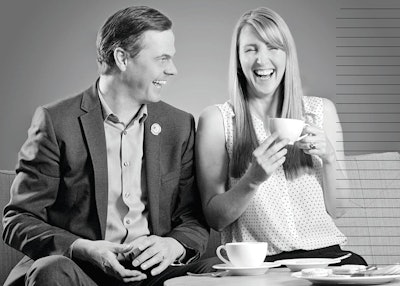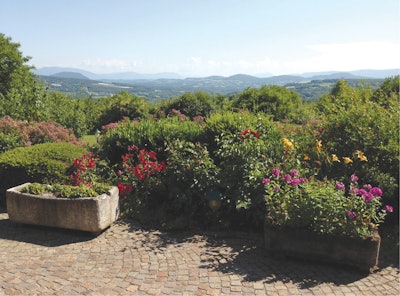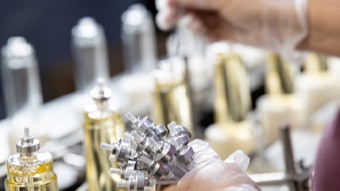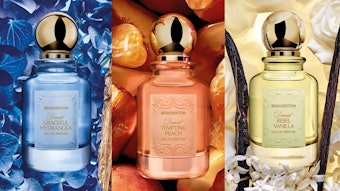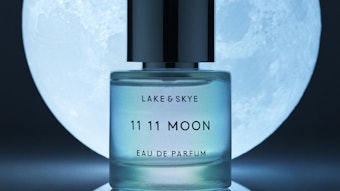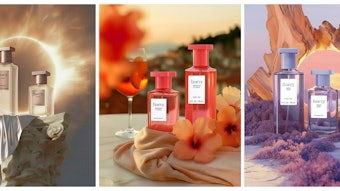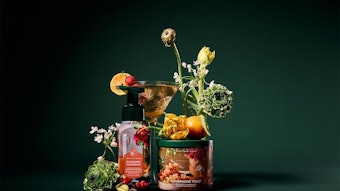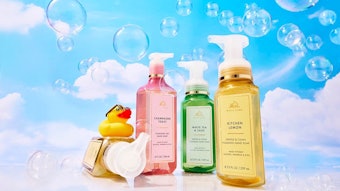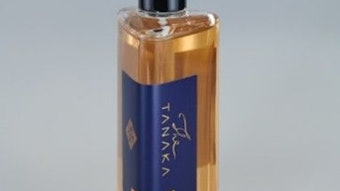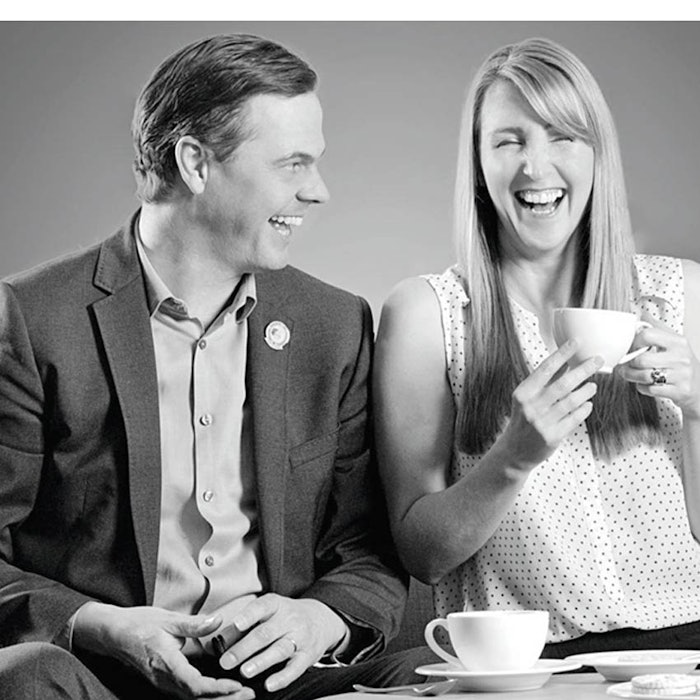
Wessel-Jan Kos is a familiar face to members and friends of the British Society of Perfumers—he has been active in the society not just as a member and a vice president, but recently a tutor, too. Although of Dutch birth, Wessel-Jan’s career at Firmenich has taken him around the world and he had settled into the UK for the last 12 years. Now, new adventures await and Wessel-Jan has just moved to Dubai to join the team there.
His frank, open and friendly style of explaining perfumery to fragrance enthusiasts and would-be-perfumers of the future has won him many fans.
“I think I’m much better at masculine fragrances than feminine fragrances. I think it’s my character: male fragrances are more bold, fresh, sparkling; clean—and female fragrances are more rounded, caring and gentle,” he muses about his own style.
When you meet Wessel-Jan, you do get a sense of a bold character, but not a trace of arrogance—just a lot of energy, a wide smile and a little hint of mischief.
The Biggest Myth
The world of perfumery is opening up—and slowly but surely, an ever-increasing number of consumers and enthusiasts are learning about the different ways in which fragrances are created. Wessel-Jan is of a refreshing set of highly trained and experienced commercial perfumers who are more than happy to bust a few myths.
“I think the biggest myth about perfumers is that they walk around with a smelling strip for hours and hours, thinking and thinking; smelling raw materials in the laboratory and slowly contemplating. I mean, sure, maybe there are a few perfumers who work that way, but the reality is that when I work, I sit behind the computer, blend a formula in my mind, write it down, and wait for my assistant to compound it while I start on the next one.”
Working this way, many perfumers report finding it useful to creatively cross from one formula to the next—one project’s problem could be the answer to another.
“I might work on twenty or even thirty formulas per day. This involves very little of walking around with a smelling strip for an hour,” Wessel-Jan says and laughs.
“Of course if I do get a brief for an olfactive theme that I’ve never worked on, which is rare after 24 years of experience, but it can happen, I can do some background checks on the internet on the composition of the plant or try other ways to research what I’ve been asked to do. One of the best things about working for a bigger company is that I can ask my flavor colleagues for advice. Especially if you’re talking about fruits, coffee or chocolate—I will go to my colleagues and ask what types of flavor materials they would use to achieve those effects. There will still be a lot of rebalancing to do, but you will get a list of starting raw materials to explore,” he pauses and considers. “On the other hand, I have just finished working on something that required me to go out and eat a brioche. For research.”
The reason Wessel-Jan and perfumers like him can sit behind a computer and conjure exotic fruits or create a new shower gel scent which owes its roots to a classic fine fragrance is all the training and practice that goes into building the mental library of smells and accords top tier creative perfumers have.
The Gardener-Perfumer
“When I was still a young trainee at Firmenich, we were told to practice simple flowers and notes. One of the projects I got involved with involved creating a muguet (lily of the valley) accord. I didn’t quite get it right the first time, so my tutor encouraged me to buy the real flower and learn its smell. So, of course, I realized how much indole there was in the real muguet scent and I went ahead and put a lot of indole into my next accord—I think it was about 1%,” Wessel-Jan explains and grins, “at the time I was very naive and didn’t know that indole discolours so heavily. The muguet note was finalized and filed away—and a year later it was proposed to a big client of ours and ended up in their product. It’s still on the market. Luckily for me, there haven’t been any discoloration complaints because the product sells so fast that it doesn’t have time to become an issue!” Wessel-Jan laughs.
That’s one way of solving the discoloration problem.
“What I think is beautiful about that is that when you’re young and still in training, you can create without boundaries. Now, 20-25 years later, I would never consider using that much indole in a formulation.”
“I do like to work on soaps and shower gels. Shower gels especially because they cover such a wide range of smells these days; you can go into chocolate, banana, peach, bubble gum—right through to florals; cosmetic smells. Anything goes, really.”
Wessel-Jan is a keen gardener. He has spent the last few years living in Geneva, after his 12 year stint in the UK came to an end when he was asked to join the Swiss team to help with the research and promotion of new ingredients. He tends to his garden every day, and although he might not have time to quietly contemplate smells at work, the exploration of scents in his own garden offers important thinking time.
“I love to grow fragrant plants especially. But sometimes I am just in the garden, looking at how everything is growing, or weeding and clearing things away,” explains Wessel-Jan. “I think because I grew up in a family of perfumers—my father was a perfumer, my uncle and great uncle were perfumers—all of us around them were always aware that such a profession exists and we also paid more attention to smells. Our bathroom was full of exotic shower gels, soaps and bubble baths my father had worked on and some of them had Korean and Japanese labels so I had no idea what I was using sometimes.”
“And because my brother and I were automatically smelling everything around us more, we spent a lot of time in the garden. I can’t say my father taught me anything specific about perfumery, but he did teach me to pay attention to smells and learn to appreciate them. Foods, too—to really experience flavors,” Wessel-Jan reminisces.
“My mother says that I said I wanted to become a perfumer from the age of five. I don’t remember that, but remember my father coming home from business trips with a lot of presents for me and my brother, so that may have influenced my thinking at the time.”
Skin Garden
Rather appropriately, some of Wessel-Jan’s latest wins are themed around a garden: “We just won all four variants of Colgate-Palmolive’s new Skin Garden shower gel range for the French market and I was involved in three of the four variants,” Wessel-Jan explains.
“It was a very long process and took two years of working with different teams—and testing the product to get it just right, but it has lead to a very beautiful line of products.”
“I also do a lot of work for the Rituals brand and the relationship is very easygoing. Their approach is very different from many of the other accounts we work on—they pick their fragrances on gut feel and don’t do a lot of market testing or consumer testing. If the project manager likes the fragrance, they will take a decision to launch. There is always a risk that it won’t work, but if it doesn’t, they just switch it again in six months.”
A larger consumer goods company manufacturing vast quantities of products could not take such risks with their big name brands, so a more cautious approach is understandable. The advantage is getting an end product which most people will like well enough, but the disadvantage is the inability to take big creative risks.
“When a perfumer knows his fragrance doesn’t have to pass consumer tests, he can be more creative and has the permission to try more out of the box things,” explains Wessel-Jan.
Everyone knows that a perfumer needs a good sense of smell and a creative mind, but Wessel-Jan is adamant that without a strong belief in yourself and an unshakeable self-assurance, a perfumer won’t make it in the commercial environment: “When you start out, you’ll be faced with working on hundreds of projects without winning one. It could take you even more than that to get your first win. That means you are losing all the time, which will be very hard for one’s self esteem. You will continue to lose more than you win because our business is so competitive—we even compete in-house. So without that important quality of self belief, a perfumer won’t survive.”
All the Clove in the World
Curiosity is also vital: “When you work on trials, it can take ten, twenty—sometimes fifty trials to get somewhere good and unless you are willing to try something completely new somewhere along the line, you’ll never really make progress,” says Wessel-Jan.
Of course, when you work for one of the top tier fragrance manufacturers, there can be unexpected consequences from your creative choices.
“One time I did the fragrance for a candle manufactured by a big air freshener company,” recalls Wessel-Jan, “and they wanted a winter variant which was based around spice and apple. Fair enough. But when the candle was placed on the market, it became such a success that the company decided to launch it as an electrical air freshener, and instead of making it seasonal, they made it an all year round fragrance.”
“Now this fragrance contained around 20% clove oil—with the result that Firmenich ended up buying something like 70% of the clove oil in the world, just for that one fragrance. So that created some severe problems and in the end we had to mix different qualities of clove oil to make sure we could deliver. It’s a very nice surprise for a perfumer to win such a big project—but for purchasing, it can become a nightmare,” Wessel-Jan laughs.
“With chemicals, you rarely have this problem—you can usually just make more of them in the factory. But with naturals, you depend on the seasons, you depend on the harvest... there’s only one or two harvests a year. So you have to be very careful with naturals for big mass market products,” he explains.
A Lifelong Adventure
“I had an advantage because I knew what I wanted to do at such a young age and my father was able to advise me. Back in his time, perfumery wasn’t quite as technical, but these days we have more things to consider than ever. He recommended I should study chemistry and I did, and got a Masters in chemistry in Netherlands. After that I went straight to ISIPCA in Versailles.”
Wessel-Jan completed an internship at IFF in Manhattan during his last year at ISIPCA, applied there first, but they had no open opportunities at the time, after which he wrote to Firmenich about a trainee perfumer position. “I wanted to approach them because of the research they do and the molecules they have, so I was quite enthusiastic in my interview.”
He was elated to be chosen: “It was an amazing feeling after university and ISPICA—to realize that suddenly you don’t have any homework and instead, you’ll be getting paid to do what you love!” Wessel-Jan laughs.
“Of course there was still a whole internal training program to go through at Firmenich—in my case it was shortened by a year because of ISIPCA, so I spent three and a half years training. At that point you are still at the beginning of a long career.
The first part of Wessel-Jan’s training was in Geneva, but he was soon moved to the United States and worked there for three years. After that, he moved to Germany for two years and was then transferred to London for 12 years, followed by six years in Geneva. His latest adventure is to Dubai, where Firmenich currently has two fine fragrance perfumers—Wessel-Jan will join the team to look after the body and home care briefs for Africa, Middle East and India regions.
“I think changes in scenery are very good, because to stay forty years in the same office and in the same country could become boring. If you spend forty years in the same segment, it could become boring, too. So it’s much more interesting for the company and for you to switch segments, clients, countries—it’s very motivating,” says Wessel-Jan.
“I think what’s important to realize is that perfumery is like running a marathon. It’s a long way to the goal and you don’t need to sprint right away. Just take it easy, step-by-step; learn all the time and go to the finish. We are not sprinters. We don’t do hundred meters. That’s not us. Perfumery is for life.”
